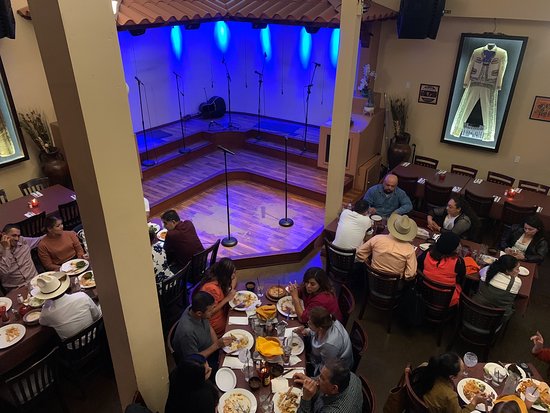Regular United states migration Law.
Each nation has its very own law particularly with regards to outsiders. As of now, the U.S. movement law depends on the Immigration and Nationality Act of 1952.
This law has been revised on many occasions in the course of the most recent forty years. The following is a portion of the basic United conditions of America migration Law.
Read Also: Which bank introduced computer to banking in Nigeria?

1-The Refugee Act of 1980
This law was initially slowed down in 1976 to acknowledge fewer settlers yet now the share has changed and broaden the number of exiles that can come into the nation to at least 50,000, contingent upon the president.
2-The Immigration Reform and Control Act of 1986 (IRCA)
The demonstration presented the setting a punishment for any resident purposely procuring undocumented settlers. The real purpose of the law is to ensure all representatives are qualified for the errand and at a similar ensure no discrimination in a business dependent on nationality or status.
Read Also: How to win a free laptop in Nigeria?
3-The Immigration Marriage Fraud Amendments of 1986 (IMFA)
This law restricts unlawful marriage with the end goal of a green card. In spite of the fact that IMFA isn’t as known as the IRCA, the law has arrangement for the foundation of a two-year time of a known “restrictive perpetual living arrangement” for outsiders who wedded Lawful Permanent Residents (“LPRs”), and toward the part of the arrangement, two gatherings must demonstrate to the INS that the marriage is genuine, and not to get the green card.
4-Immigration Nursing Relief Act of 1989 (INRA)
The law was right off the bat set in the year 1994. The law made built up a recently change brief Visa class for Nurses. This visa keeps going for a long time and the representative is required to show incredible exertion to the nation and to enlist US laborers.
For medical caretakers who have gone through over three years in the nation, the law likewise grants a changeless visa without setting any quantity.
Read Also: Is it legal to use olufela as a stage name in the Nigerian music industry?
5-Personal Responsibility and Work Opportunity Reconciliation Act of 1996 (Welfare Reform Law)
This law kept legal lasting inhabitants from getting most means-tried open advantages, including welfare, Medicaid, sustenance stamps, supplemental security income (SSI), and others, paying little heed to their length of home in the United States or their support in the Social Security program.
Enabled a support’s salary to be incorporated into estimations of pay when deciding need, and made the sworn statement of help for workers legitimately enforceable.
Since the entry of this Act, consequent laws have reestablished numerous advantages to lawful inhabitants who were in the United States at the time this law was established.
6-Section 245 (I) Legislation – State Department Authorization Act of 1994 and Departments of Commerce, Justice, and State, the Judiciary and Related Agencies Appropriations Act of 1997
Incorporated into the 1994 State Department Authorization Act was an arrangement (Section 245(i)) that took into account change of status to perpetual home for people who had fallen “out of” endless supply of a punishment charge.
Read Also: What are the impacts of financial inadequacy on the development of small scale industry in Nigeria
This arrangement was set to lapse in three years. In 1997, Congress chose to drop the 245(i) program yet taken into consideration the “grandfathering” of people who had documented an appeal or application for LPR status or who had a work confirmation on the record before January 14, 1998.
The 1997 enactment likewise made another §245(k) that permits certain business based visa candidates to alter status in the United States as long as they have not been out of status for in excess of a sum of 180 days.
7-Nicaraguan Adjustment and Central American Relief Act of 1997 (NACARA)
Given to alteration of status for all Nicaraguans and Cubans who were available in the United States since December 1, 1995, and accommodated restricted capacity to apply for suspension of expulsion for specific Salvadorans and Guatemalans who had connected for haven before April 1, 1990, and for Eastern Europeans who entered the United States before December 31, 1990, and had connected for refuge before December 31, 1991.
The law decreased the accessibility of business based settler visas for lesser-talented laborers considerably and diminished the assorted variety visas by 5,000 to suit the new outsiders under this Act.
8-Section 245 (I) Legislation – State Department Authorization Act of 1994 and Departments of Commerce, Justice, and State, the Judiciary and Related Agencies Appropriations Act of 1997
Incorporated into the 1994 State Department Authorization Act was an arrangement (Section 245(i)) that took into account alteration of status to changeless habitation for people who had fallen “out of” endless supply of a punishment charge.
Read Also: What are your Expectations this month of MAY?
This arrangement was set to terminate in three years. In 1997, Congress chose to drop the 245(i) program however took into consideration “grandfathering” of people who had documented an appeal or application for LPR status or who had a work confirmation on the record before January 14, 1998.
The 1997 enactment likewise made another §245(k) that permits certain business based visa candidates to change status in the United States as long as they have not been out of status for in excess of a sum of 180 days.





